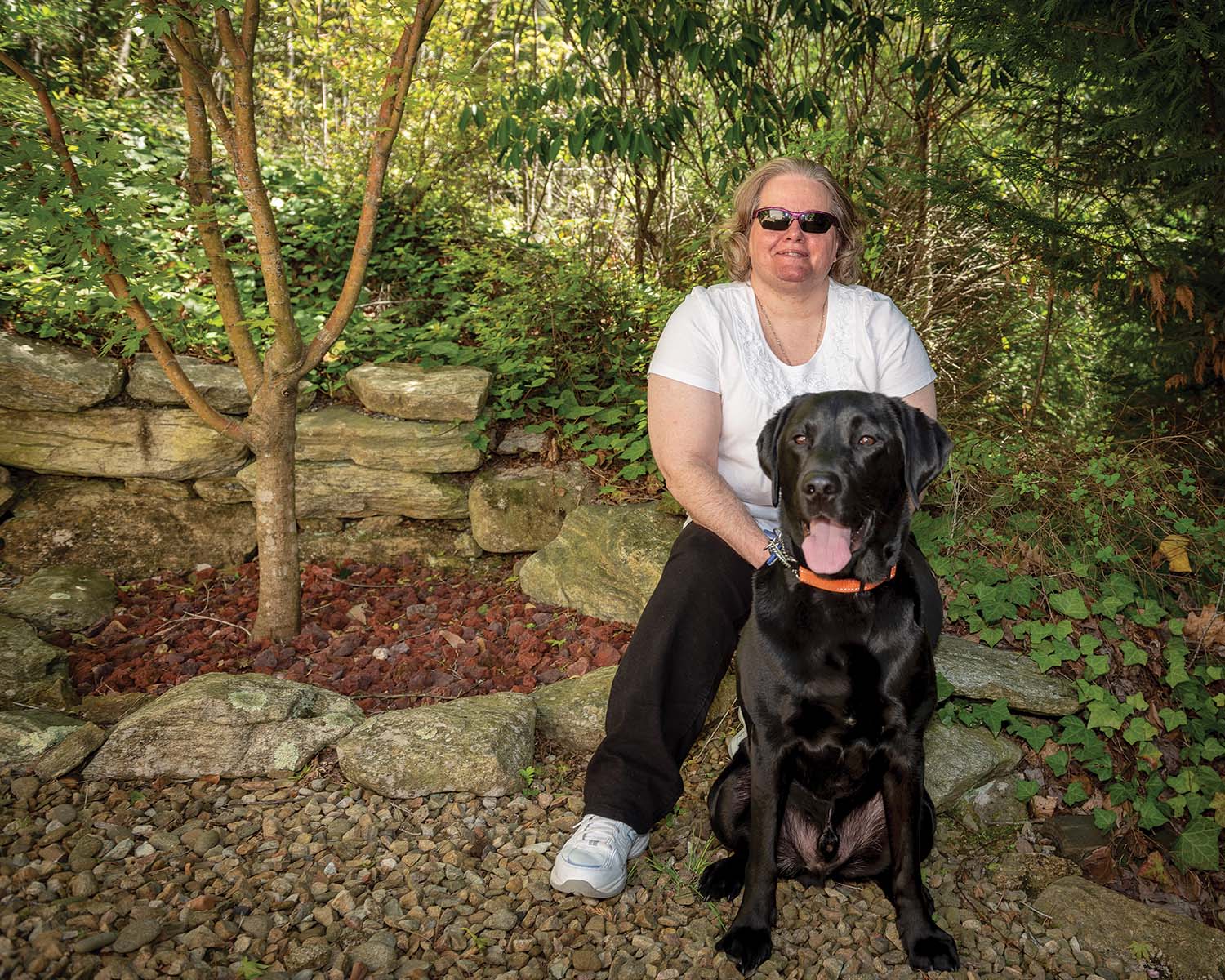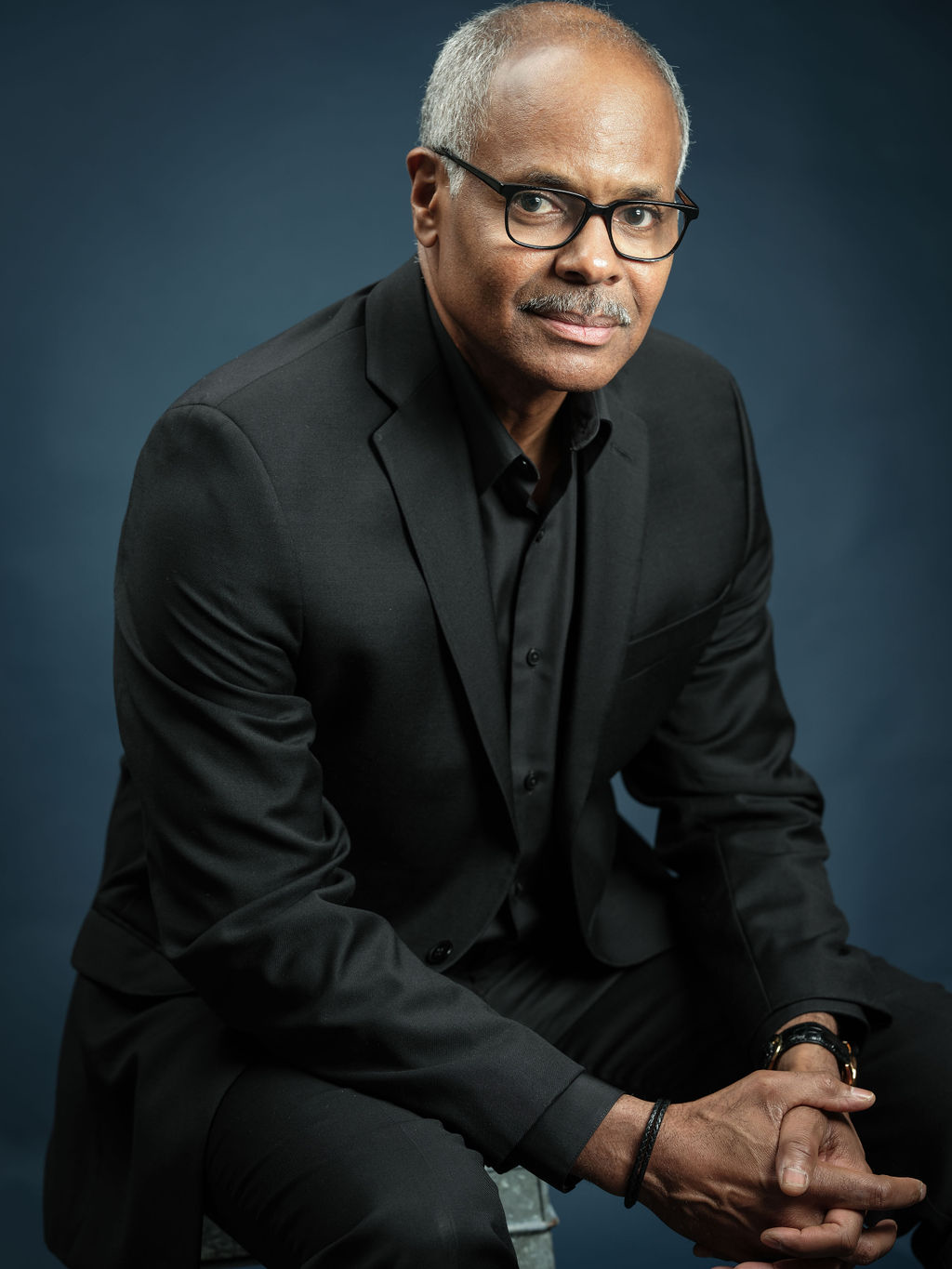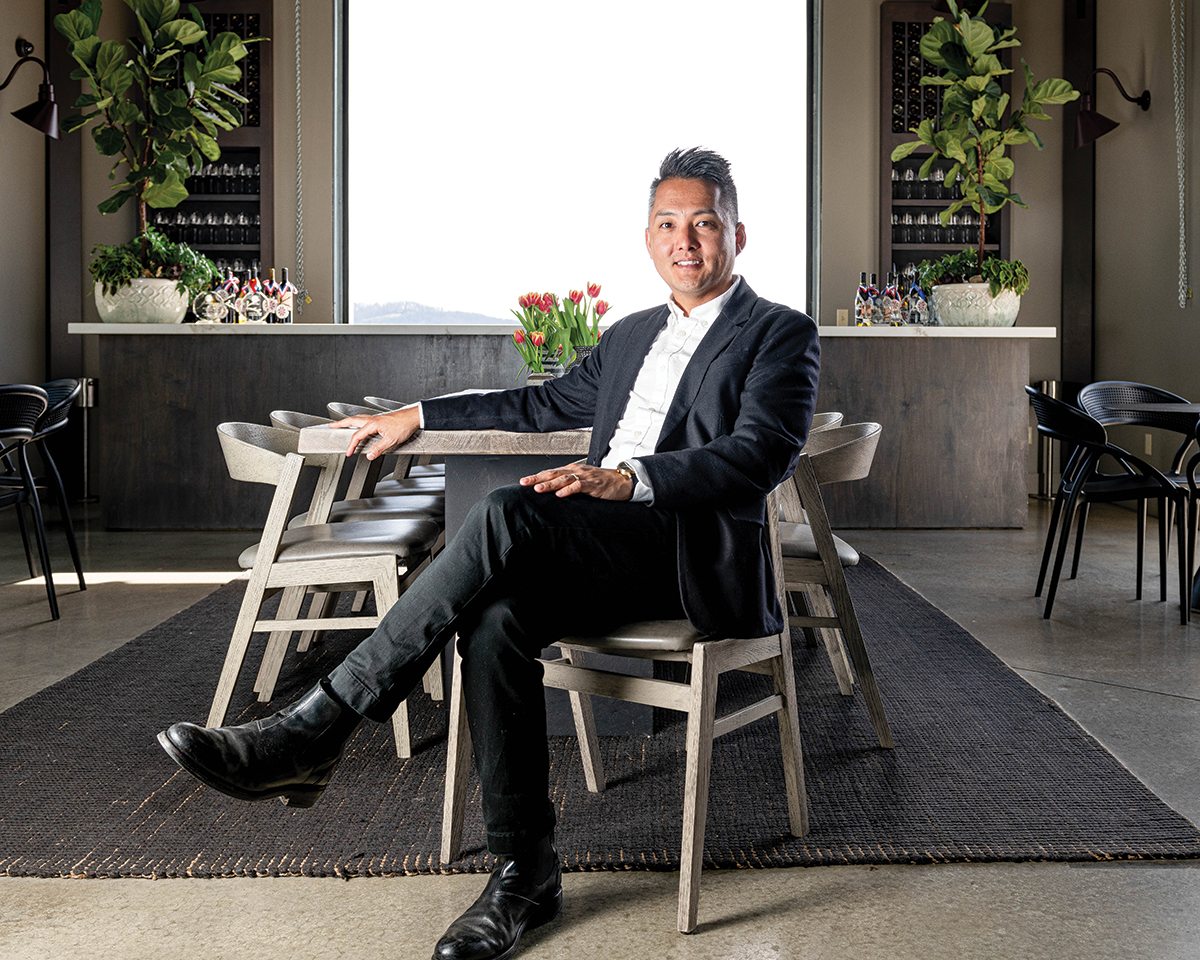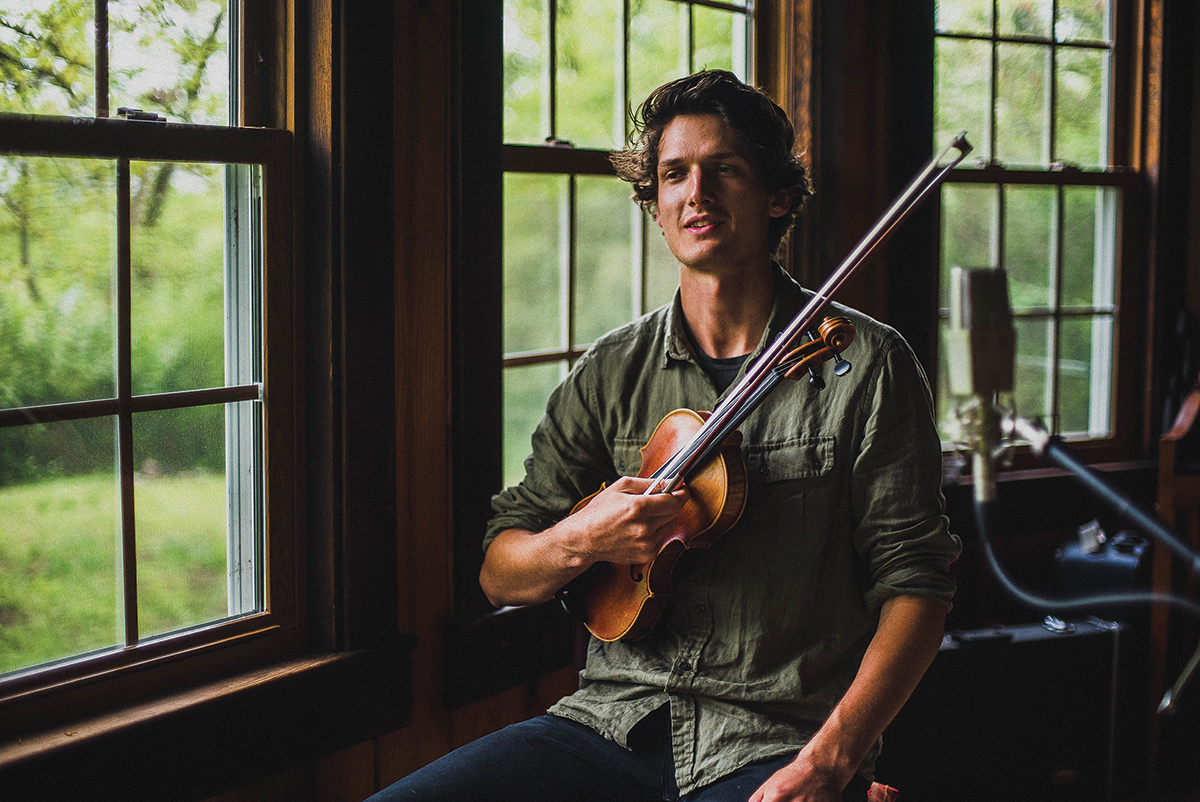
Deborah Fazio navigates the world with her guide dog Ramsey. Photo by Paul Stebner
So much of our perception of the world around us arrives by sight that losing that sensory connection can seem catastrophic. But Deborah Fazio, whose sight began to deteriorate after she volunteered at Ground Zero just after the 2001 attacks on the World Trade Center, has learned otherwise.
An East Henderson High graduate who left home right after high school, “puny and impoverished” and searching for adventure, Fazio trained to become a paramedic and then a nurse, traveling coast to coast to give aid after major disasters, from the California earthquake in 1989 to the Oklahoma City bombing in 1996. “I’ve had an amazing life,” she tells Bold Life. Now settled back in the area with her Italian husband — “it reminds him of home” — she shares her experience this month at Blue Ridge Community College, in a talk subtitled “The Art of Going Blind.”
Was losing your sight directly related to your experience at Ground Zero?
It’s a bit complicated. I have a neurological condition that, at the time, I was unaware of. While there was nothing as dramatic as bumping my head, or a sudden shift from sighted to blind, it was a factor. My optic nerve was damaged. All of the cement dust, fiberglass dust, and other flying debris caused inflammation and irritation that exacerbated my condition.
What were your thoughts and feelings immediately in the wake of your blindness? And how have they evolved to the present?
I was told my vision would probably continue to decline and I should prepare for the worst. I went home and hid in my bedroom, my dreams of travel and adventure sliding away. My turning point was not a magic moment. It was a slow evolution that, with a lot of help and support, I would be OK. The New Hampshire Association for the Blind came to my home and hand-held me on everything. Now I travel independently. I fly, I take buses, taxis, Ubers.
What is the sensory framework that replaces that of a sighted person?
Touch becomes so important. I use markers for most things, from raised dots telling me how far to turn the washer dial to a Braille marker on the microwave. You learn patience pretty quickly. I listen much more carefully now. People ask all the time if my hearing is supersonic now. No! It’s normal hearing, but I must pay attention to what I’m hearing more closely.
You’ve spoken of learning to walk by faith, not sight. Can you elaborate? Is it related to your service dog, at least partially?
Ramsey provides me with a great deal of freedom, but I needed to be trained on how best to use his services. It’s quite a bit faster to get from point A to point B with a dog. But what I mean by faith is that I’ve realized that I am not in control. I must take life as it unfolds. My trust in God has led me to accept that he is going to place me exactly where I am needed, when I am needed.
The deaf community considers deafness an identity to be embraced, not a condition to inspire pity. Is it somewhat similar for those who’ve lost their sight?
The blind do not wish pity. They wish understanding and acceptance. I feel it’s very important for the public to learn that blind people are not to be avoided. Most of us are just trying to get from one day to the next without injury or insult. We just want to live our lives, the same as everyone else.
Deborah Fazio presents “Blind Curve Ahead: The Art of Going Blind” Wednesday, June 6, 1-3pm, sponsored by the Blue Ridge Center for Lifelong Learning in Room 122 of the Continuing Education Building at Blue Ridge Community College (180 West Campus Drive, Flat Rock). $20/members, $30/non-members. For more information, visit brcll.com.



